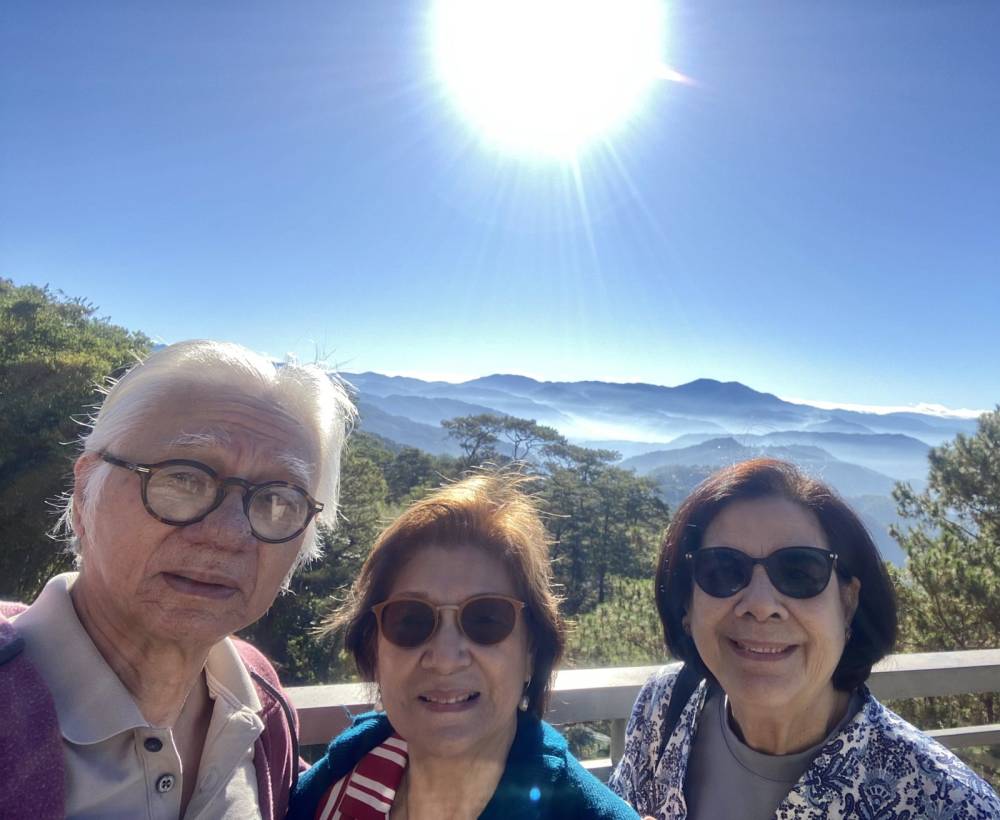Baguio when it was teenage heaven



Who among us seniors have not had a romance in our youth with the City of Pines? Yes, it was once called that when visitors were welcomed to Baguio by the scent of pine carried on a cool breeze. The scent was so strong and the cold air so definitive there was no mistaking where you were. I remember how we would switch off the car air-conditioning once we got well on the zigzag road to the mountain city and roll down our windows to breathe in Baguio as it announced itself.
I started visiting Baguio early—both my parents just loved the place—but I can only recall the trips in my preteen years, after my brother was born, five years after me. It was our favorite summer vacation place. We would stay at Pines Hotel or at some other hotel near Burnham Park, where we would be left with a yaya, to skate, bike or take the boat ride on the man-made lake, while our parents went bowling with friends. We also had to be near the Baguio market, for the fresh vegetables, strawberries, Dipasupil longganisa, brooms and silver trinkets to bring down.
Young romances
Sometimes we would rent a house, and our maid and driver would go up ahead to clean it and change the towels and linens to our own. Mom and the maid would go to market for the fresh vegetables for her nilaga and her famous sukiyaki. Mom loved to cook, but Dad also loved eating out. We managed to eat at all those famous restaurants in town and some exclusive ones hidden from the public eye. In high school, Baguio meant being with friends most of the waking hours. Mom and Dad suspended all their parental rules in Baguio. It was there that I enjoyed the most freedom. The only limit set was no sleeping out with friends.
It was there that my social world expanded. I met and made many new friends in Baguio, schoolgirls and schoolboys on vacation as well. We could be beginning our day in one host home and end up with the marshmallow roastings over a bonfire in another. We’d walk in groups on Session Road, go bowling, watch a movie. We always moved around in groups, completely unchaperoned. It was teenage heaven.
Many young romances started in Baguio. Some lasted beyond the summer until forever. There were many early elopements, in fact, such that my two cousins and a family friend’s daughter and I were wrestled to Spain right after high school as a precaution.
Most summer romances cooled off, though, proving hard to sustain in hot Manila, where stricter family rules were enforced and no places were safe from watchers. Intimate moments could happen in phone conversations, but still an eavesdropper on a shared party line could spoil it all.
After Spain and during my college years, Mom and Dad allowed me to go to Baguio without them, as long as I went with a friend. In fact, Dad would take me and a classmate to the airport to fly to Baguio. We’d stay in Vallejo Hotel, owned by the Vallejo-Garcia families, a branch of which had three daughters, two of them Theresians, the youngest one a dear old buddy—she has been living in the States most of her life, but we have remained in touch. Going back, my classmate and I usually took the train. Other times we took the train both ways. When some of the boys, who drove down in their own cars, learned that we’d be on the train, they tried to keep apace—with our train.
Baguio was associated with youthful energy and innocent fun. But that was long ago. Baguio has grown old and ugly with me—I’m 84, and not what I used to be myself.
Baguio has aged too, though not just with the natural ravages of time, but with the sinful neglect of those in whose care it could have fulfilled its potential to stand side-by-side with the best of other foreign vacation places. After all, it had a lot of things going for it—perfect weather, scentful and scenic, good hotels, an adequate hospital, good schools, like Brent, Maryknoll, St. Theresa’s, St. Louis University, Baguio Military Institute and, of course, the Philippine Military Academy. Its citizens were among the best English speakers in the country.
Baguio’s great potential was destroyed by neglect, greed and utter lack of planning and vision.
Beautiful parts
This most recent visit I was with my husband, who has youthful memories of his own. We were much older, both in the second chapter of our lives, when we rediscovered Baguio together, itself looking more on the decline than us. But we still love to go for the virtues it has managed to keep. The weather is still cool in early March, and the Country Club would always be there, we hope. We are not members, but are perennial guests of member friends, the next best thing.
Vergel and I had been regular Baguio visitors until the pandemic struck. Our granddaughter Mona, who loved riding horses and visiting the peacock at the club’s zoo, holds Baguio in her heart. This week Vergel and I—without Mona, who was in school—went up with an old dear friend and stayed in her condo, which has a rare magnificent view.
Baguio, of course, is still there, though a shadow of its old self, but it still has it beautiful parts. Not all mountains are covered with tin roofs throwing a blinding, hard gleam in the sunlight. There’s more green left, seemingly untouched, still able to maintain a good measure of majesty. There are pine trees but not enough to emit the memorable fragrance. It is sad.
I don’t know how things could yet turn around for Baguio. Anyway, while Baguio and I, such as we are, are still around, I will go back again and again for what’s left of it. Seniors like me look at Baguio with older eyes, with fond remembrance, and it somehow makes up for what it actually has lost.
And being here with old friends, chatting the cool night away, then sleeping late without guilt, we just can’t stop going—while we can. INQ
###—###
#ColumnName
not quite there

















